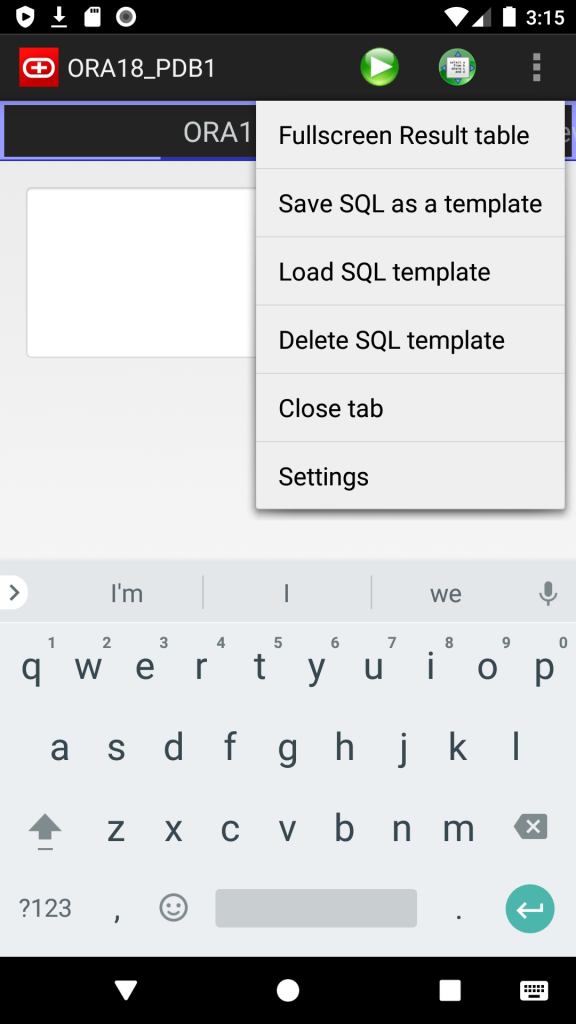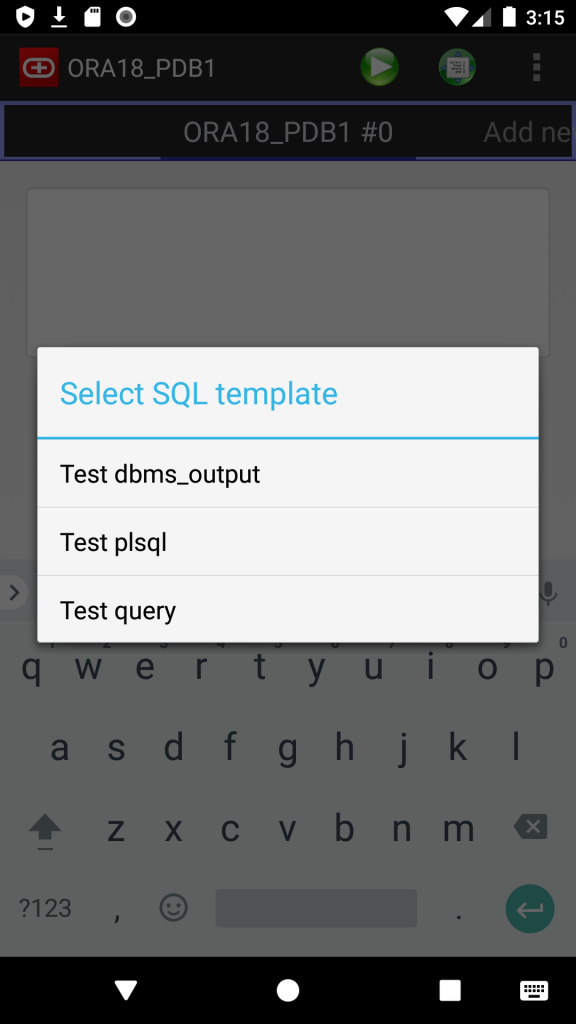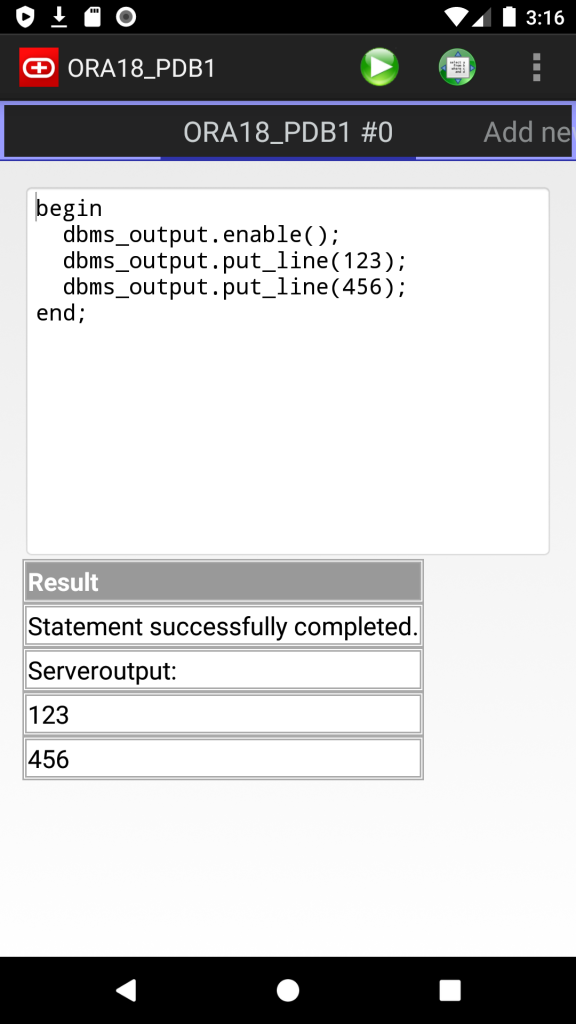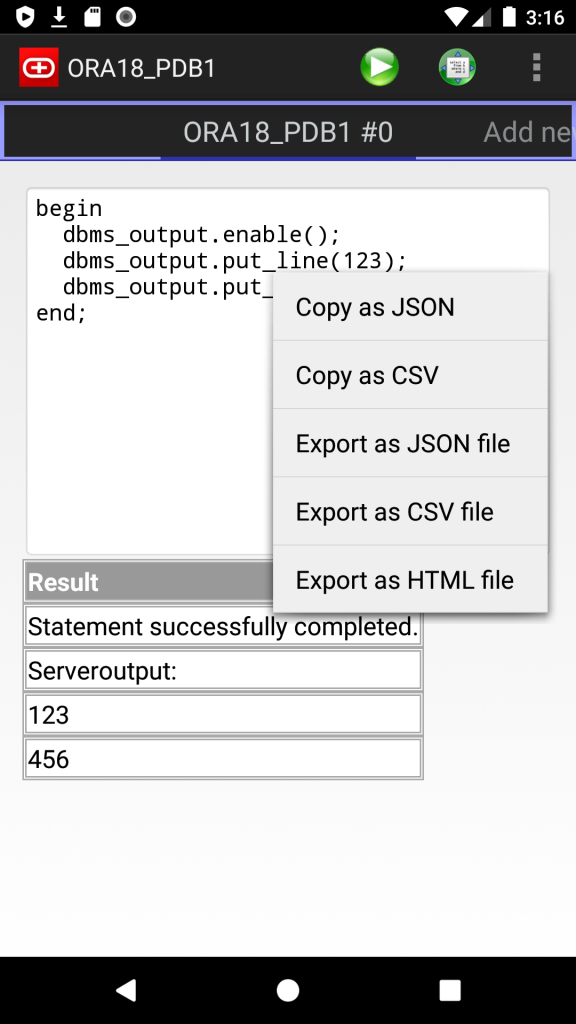Oracle 12c introduced Partial indexing, which works well for simple partitioned tables with literals. However, it has several significant issues:
Continue readingCategory Archives: SQL
Slow index access “COL=:N” where :N is NULL
All Oracle specialists know that a predicate X=NULL can never be true and we should use “X is NULL” in such cases. The Oracle optimizer knows about that, so if we create a table like this:
Continue reading:1 and SP2-0553: Illegal variable name “1”.
You may know that some applications generate queries with bind variables’ names like :1 or :”1″, and neither SQL*Plus nor SQLCl support such variables:
SQLPlus:
SQL> var 1 number;
SP2-0553: Illegal variable name "1".
SQLCL:
SQL> var 1 number;
ILLEGAL Variable Name "1"
So we can’t run such queries as-is, but, obviously, we can wrap them into anonymous PL/SQL blocks and even create a special script for that:
Continue readingORA exceptions that can’t be caught by exception handler
I know 2 “special” exceptions that can’t be processed in exception handler:
- “ORA-01013: user requested cancel of current operation”
- “ORA-03113: end-of-file on communication channel”
- and + “ORA-00028: your session has been killed” from Matthias Rogel
Tanel Poder described the first one (ORA-01013) in details here: https://tanelpoder.com/2010/02/17/how-to-cancel-a-query-running-in-another-session/ where Tanel shows that this error is based on SIGURG signal (kill -URG):
-- 1013 will not be caught:
declare
e exception;
pragma exception_init(e,-1013);
begin
raise e;
exception when others then dbms_output.put_line('caught');
end;
/
declare
*
ERROR at line 1:
ORA-01013: user requested cancel of current operation
ORA-06512: at line 5
Format SQL or PL/SQL directly in Oracle database
Obviously we can format/beautify SQL or PL/SQL code using external tools, but sometimes it would be more convenient to format it directly in database, for example if we want to see few different sql_text’s from v$sqlarea. And thanks to Oracle SqlCL and Oracle SQL Developer, we can easily use oracle.dbtools.app.Format function from their Java library dbtools-common.jar, so if you use SqlCL or SQL Developer, you can use the same formatting options.
1. load appropriate java library into Oracle
You may have already installed SQLDeveloper or SqlCL on your database server, just check $ORACLE_HOME/sqldeveloper or $ORACLE_HOME/sqcl directories. If – not, you need to download appropriate SqlCL version that matches your java version in Oracle. For 12.2 – 19.8 you can download latest SqlCL 20.3. In fact we need just dbtools-common.jar from lib directory. I put it into $ORACLE_HOME/sqlcl/lib directory on the server and load it using loadjava:
Continue readingFunny friday Oracle SQL quiz: query running N seconds
Write a pure SQL query with PL/SQL that stop after :N seconds, where :N is a bind variable.
with v(start_hsecs, delta, flag) as (
select
hsecs as start_hsecs, 0 as delta, 1 as flag
from v$timer
union all
select
v.start_hsecs,
(t.hsecs-v.start_hsecs)/100 as delta,
case when (t.hsecs-v.start_hsecs)/100 > :N /* seconds */ then v.flag*-1 else v.flag+1 end as flag
from v, v$timer t
where v.flag>0 and t.hsecs>=v.start_hsecs
)
select delta
from v
where 0>flag
/
--end
SQL> var N number
SQL> exec :N := 3 /* seconds */;
PL/SQL procedure successfully completed.
SQL> select...
DELTA
----------
3.01
1 row selected.
Elapsed: 00:00:03.01
Another my solution using sys.standard.current_timestamp, so some internal pl/sql…:
select count(*) from dual
connect by sys.standard.current_timestamp - current_timestamp <= interval'3'second;
Simple function returning Parallel slave info
You can add also any information from v$rtsm_sql_plan_monitor if needed
create or replace function px_session_info return varchar2 parallel_enable as
vSID int;
res varchar2(30);
begin
vSID:=userenv('sid');
select
to_char(s.server_group,'fm000')
||'-'||to_char(s.server_set,'fm0000')
||'-'||to_char(s.server#,'fm0000')
||'('||s.sid||','||s.degree||'/'||s.req_degree||')'
into res
from v$px_session s
where s.sid=vSID;
return res;
exception when no_data_found then
return 'no_parallel';
end;
/
Simple example:
select--+ parallel
px_session_info, count(*)
from sys.obj$
group by px_session_info
/
PX_SESSION_INFO COUNT(*)
------------------------ --------
001-0002-0001(630,2/2) 38298
001-0002-0002(743,2/2) 34706
Android Oracle Client 2.0
I’ve just released new version of my Simple Android Oracle Client.
New features:
- Supported Oracle versions: 11.2, 12.1, 12.2, 18, 19, 20.
- SQL Templates: now you can save and load own script templates
- Server output (dbms_output)
- Export results as JSON, CSV and HTML files (long tap on results)
- Copy results to the Clipboard as JSON or CSV
I use it just for basic troubleshooting and small fixes, but, please, let me know if you need anything else.
Screenshots:
PL/SQL functions and statement level consistency
You may know that whenever you call PL/SQL functions from within SQL query, each query in the function is consistent to the SCN of its start and not to the SCN of parent query.
Simple example:
create table test as
select level a, level b from dual connect by level<=10;
create or replace function f1(a int) return int as
res int;
begin
select b into res
from test t
where t.a=f1.a;
dbms_lock.sleep(1);
return res;
end;
/
As you can see we created a simple PL/SQL function that returns the result of the query select b from test where a=:input_var
But lets check what does it return if another session changes data in the table:
-- session 2:
begin
for i in 1..30 loop
update test set b=b+1;
commit;
dbms_lock.sleep(1);
end loop;
end;
/
-- session 1:
SQL> select t.*, f1(a) func from test t;
A B FUNC
---------- ---------- ----------
1 1 1
2 2 3
3 3 5
4 4 7
5 5 9
6 6 11
7 7 13
8 8 15
9 9 17
10 10 19
10 rows selected.
As you can see we got inconsistent results in the column FUNC, but we can easily fix it using OPERATORs:
CREATE OPERATOR f1_op
BINDING (INT)
RETURN INT
USING F1;
Lets revert changes back and check our query with new operator now:
--session 1:
SQL> update test set b=a;
10 rows updated.
SQL> commit;
Commit complete.
-- session 2:
begin
for i in 1..30 loop
update test set b=b+1;
commit;
dbms_lock.sleep(1);
end loop;
end;
/
-- session 1:
SQL> select t.*, f1(a) func, f1_op(a) op from test t;
A B FUNC OP
---------- ---------- ---------- ----------
1 2 2 2
2 3 5 3
3 4 8 4
4 5 11 5
5 6 14 6
6 7 17 7
7 8 20 8
8 9 23 9
9 10 26 10
10 11 29 11
10 rows selected.
As you can see, all values in the column OP are equal to the values of B, while, in turn, function F1 returns inconsistent values.
Just short note for myself: OJPPD limitations
As of Oracle 19c OJPPD doesn’t support connect-by and TABLE():
OJPPD: OJPPD bypassed: query block contains START WITH/CONNECT BY.
OJPPD: OJPPD bypassed: View contains TABLE expression.






